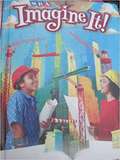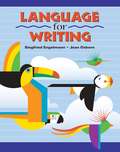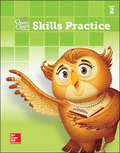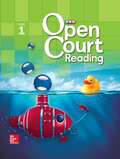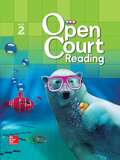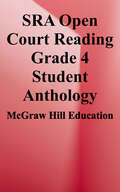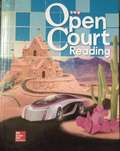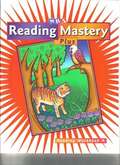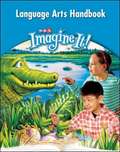- Table View
- List View
SRA Imagine It!, Reteach, Workbook, Level 3 (California)
by Sra Mcgraw-HillImagine It! is a comprehensive Reading and Language Arts program that will teach your children to read, write, and think independently!
SRA Language for Writing: Workbook
by Jean Osborn Siefried EngelmannLanguage for Writing is a comprehensive writing program for students who need a highly structured approach to learn to write well. The program teaches the conventions students require to write clearly - the vocabulary needed to describe actions, events and objects, and the sentence structures necessary to put ideas into writing.
SRA Open Court Classics: Level 5
by Carl Bereiter Michael Pressley Sandra N. KaplanUnits of Study: Cooperation and Competition Astronomy Heritage Making a New Nation Going West Journeys and Quests
SRA Open Court Reading, Grade 2, Skills Practice, Book 2 (Imagine It)
by Bereiter Et McGraw HillNIMAC-sourced textbook
SRA Open Court Reading, Grade 2, Student Anthology, Book 1
by Carl Bereiter Joe Campione Andrew BiemillerNIMAC-sourced textbook
SRA Open Court Reading, Grade 2, Student Anthology, Book 2
by Carl Bereiter Joe Campione Andrew BiemillerNIMAC-sourced textbook
SRA Open Court Reading, Grade 3, Practice Decodable Stories, Blackline Masters
by McGraw-Hill EducationNIMAC-sourced textbook
SRA Open Court Reading, Grade 4 Student Anthology
by McGraw Hill EducationStudent Anthologies include a variety of narrative and informative texts to help students understand concepts such as: key ideas and details, writing as a craft, and the integration of background knowledge and ideas.
SRA Open Court Reading, Grade 5
by Carl Bereiter Joe Campione Andrew BiemillerNIMAC-sourced textbook
SRA Reading Mastery Plus: Reading Workbook A Level 1
by Siegfried EngelmannReading Mastery Plus gives students the skills and the clear, explicit instruction and guidance they need to master the fundamentals of reading. Oral language, phonemic awareness, and systematic phonics are the starting point. Vocabulary development, fluency, and comprehension are fundamental throughout.
SRA: Imagine It! Language Arts Handbook, Level 3 [Grade 3]
by Jean Wallace Gillet Charles Temple James D. WilliamsNIMAC-sourced textbook
SRA: Imagine It!, Language Arts Big Book, Level K [Kindergarten]
by Sra Mcgraw-HillNIMAC-sourced textbook

